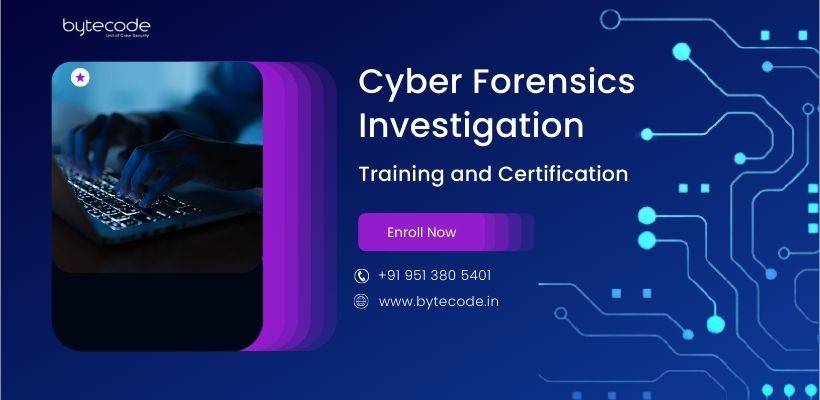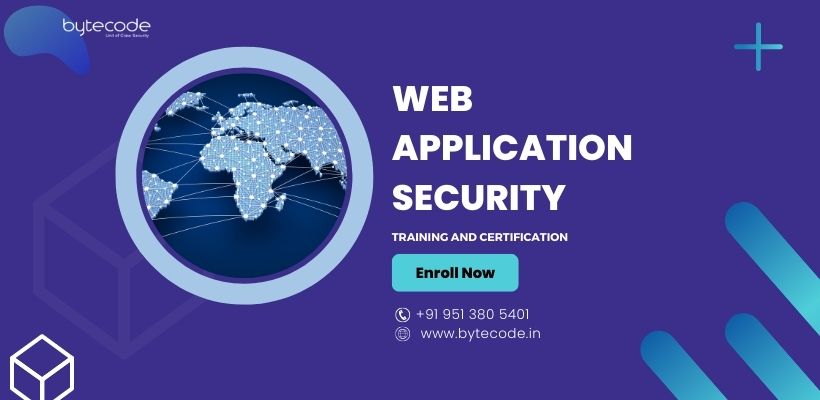Basic Networking Course with AI in Delhi
The process of linking computers and other devices to exchange data and resources is known as networking. Local area networks (LANs), wide area networks (WANs), and the Internet are only a few of the numerous varieties of networks. IP addresses, which are utilized to identify equipment on a network, and protocols, which control device-to-device communication, are other fundamental networking principles. Networking equipment like switches and routers are also used to link and control network traffic.
We truly need a primetime Basic Networking Course with AI in Delhi to give the greatest networking experience possible while keeping all the networking fundamentals up to date in order to counteract the growing cyberattacks that target different networking interfaces. We did our best to cover the majority of networking fundamentals in this blog article and to offer certified networking courses.

What will you learn in Best Networking Course for Beginners?
Beginner-friendly networking courses should usually address the various obstacles that students encounter in their everyday lives, including practicing networking principles. In order to give all students the best foundational knowledge in networking, we genuinely offer the most excellent and authentic networking course for beginners, led by renowned professors with many years of real-world experience.
Furthermore, Bytecode Security, a well-known networking training center in India, offers popular Basic Networking Courses with AI at the cutting-edge elevations at Saket and Laxmi Nagar institutes in New Delhi, providing students with all the minor to major theoretical knowledge of top networking basics courses.

Grab Everything with Globally Acclaimed Networking Course Online
Bytecode Security aims to provide students with the finest fundamentals of Basic Networking Courses with AI. Under the close supervision of numerous innovative instructors who generously offer their exceptional mentorship, learners will achieve astounding proficiency, enabling them to genuinely receive the best networking guidance available worldwide. Furthermore, this proactive Basic Networking Course with AI can be taken online with our online networking course instruction.
Additionally, this specific online networking course is made available to all working professionals who are unable to pay for an in-person offline course.
Students can attend classes from their homes. It takes less time to attend an online class. At the same time, various groups can attend online classes with bytecode Cyber Security From home.
IN-DEPTH ADVANCED NETWORKING
OUR CURRICULUM
Module 01: Computer Networking
Module 02: Introduction To Networking
Module 03: Ipv4 And Ipv6
Module 04: Subnet Mask, Cidr, And Subnetting
Module 05: VLSM, Wild Card, Summarization
Module 06: OSI Model
Module 07: TCP/IP Model
Module 08: Network Devices, Cabling, and Packet Tracer
Module 09: ARP and ICMP
Module 10: Packet Flow
Module 11: Routing – Static And Dynamic
Module 12: Static Routing – Next Hop Ip And Exit Interface
Module 13: Dynamic (RIP)
Module 14: EIGRP
Module 15: OSPF
Module 16: Redistribution
Module 17: Remote Services ( Telnet And SSH )
Module 18: DHCP
Module 19: ACL
Module 20: Switching
Module 21: L2 Protocols – CDP, VLAN, STP, DTP, VTP
Module 22: Ether-Channel
Module 23: Port Security
Basic Networking Course with AI Modules:
- Module 1: Introduction to Networking and AI Integration
- Basics of Networking
- Role of AI in Networking
- Module 2: Network Fundamentals
- CCNA Core Concepts
- AI-Assisted Learning Tools
- Module 3: Routing and Switching
- Static and Dynamic Routing
- Switching Concepts
- AI for Optimization
- Module 4: Access Control and Security
- Access Control Lists (ACLs)
- Network Security
- AI in Security
- Module 5: IP Services and Automation
- DHCP and DNS
- NAT (Network Address Translation)
- AI and Automation
- Module 6: Advanced Routing Concepts
- EIGRP
- Redistribution
- Module 7: Network Monitoring and Troubleshooting
- Troubleshooting Tools
- AI for Troubleshooting
- Module 8: AI-Enhanced Lab Sessions
- Module 9: Final Project
- Module 10: Certification and Career Path
Basic Home Networking Course for Beginners
Beginners’ courses on basic home networking would typically cover the following important topics:
| Setting up a home network | The fundamentals of setting up a home network, including the various kinds (wired and wireless) and how to connect various devices to the network, will be covered in this part. |
| Understanding IP addresses and DHCP | It will go over the fundamentals of IP addresses and how devices on a home network are automatically assigned IP addresses via DHCP. |
| Router configuration | The fundamentals of setting up a home network, such as configuring wireless security and port forwarding for particular apps, will also be covered in this section. |
| Network troubleshooting | In order to identify and resolve network problems, this part will go over typical network troubleshooting methods and tools, like ping and traceroute. |
| Cloud Services and Remote Access | This part will also go over the fundamentals of cloud services like Dropbox and Google Drive as well as how to use a VPN or Remote Desktop to access your home network from a distance. |
| Home Automation | The fundamentals of home automation will also be covered in this section, including setting up your home network to link smart lights, thermostats, and security cameras. |
| Hands-on experience | Additionally, this course will give students practical exposure to real-world home networking hardware and software, including switches, routers, and other networking protocols. |
Furthermore, the aforementioned points — which are often covered in Bytecode Security’s Basic Networking Course with AI — can serve as the main highlights of a beginner’s course on basic home networking.
Introduction of AI into Basic Networking Course by Bytecode Security
Learners with a good intention to start a well-off career in information security through the superb Basic Networking Course by Bytecode Security, a primetime Networking Training Institute in Delhi NCR with the best crew of trainers and mentors to deliver world-class training via the latest tactics, techniques, and procedures (TTPs). In addition to that, the superb participants of this course can also take this course with the full essence of AI (Artificial Intelligence) right under the guidance of world-class training mentors and instructors with more than 12 years of classic work experience.
Hence, if you are sincerely interested in starting this primetime Basic Networking Course with AI by Bytecode Security, you can call our 24X7 hotline number +91-9513805401 and interact with our superb educational counselors with good expertise in sharing their best piece of advice and shaping the lives of many cybersecurity enthusiasts.
Why join Basic Networking Course with AI from Bytecode Security?
With a number of unique selling propositions (USPs) that set it apart from other colleges, the Bytecode Security campus is a great option for those who are genuinely interested in studying the foundations of networking.
- There are extensive training programs on bytecode security that are certification-focused.
- Furthermore, we offer mentors with years of experience working in reputable industry firms, as well as certifications and extensive knowledge as risk hunters.
- In addition, our curriculum is highly adaptable to accommodate each student’s unique needs.
- Moreover, Bytecode Security offers an extensive array of post-training support services.
Key Fundamentals of Basic Networking Course
- Fundamentals of Networking and Defence Techniques
- Implementing Network Security Controls and Protocols
- Designing and Implementing Network Security Policies
- VPN Security
- Configuring Host Security, File System Encryption, and Firewall Implementation
- Network Security Threats and Vulnerabilities
- Monitoring and Analysing Network Traffic
- Network Risks and Vulnerabilities and Network Incident Response
Who should join the Basic Networking Course with AI?
- Those looking to gain a basic understanding of networking can gain a great deal from the experience and advice provided by highly qualified mentors and trainers.
- If someone wants to switch from another IT discipline to networking.
- If someone wants to learn everything there is to know about networking, starting with the fundamentals.
Course Duration
- Course Duration: 40 Hours
- Course Level: Intermediate
- Included: Training Certificate
- Language: English, Hindi
- Course Delivery: Classroom Training
- Course pdf: Click here to Download
Eligibility Criteria
Any graduate, undergraduate, or post-graduate student having a passion for information security can undergo our Cyber Security course in Delhi and become a certified ethical hacker. If you are willing to know more about the course or admission eligibility, just give us a call and we will suggest the best batch option for you.
Our Students are placed in Companies




Our Google Reviews
Our Related Course
Frequently Asked Questions
About Basic Networking Course in Delhi
Is networking in demand?
Computer networking professionals are highly sought after by numerous recruitment agencies and managers for a wide range of networking-related job roles in major urban centers including Delhi NCR, Mumbai, Chennai, Hyderabad, Bangalore, Kolkata, Jaipur, Gwalior, and several more.
It is worth mentioning that the remuneration received by networking professionals is rather substantial, serving as a significant factor motivating numerous aspiring individuals to pursue jobs in these domains.
Is networking a good career option?
Yes, it is! Developing relationships may be a highly lucrative and fulfilling professional path. Rapid technological advancement is increasing the demand for knowledgeable and experienced network specialists. As more businesses rely on computer networks for everyday operations, there will likely be a greater need for network workers.
A networking specialization can also lead to a steady job, a decent salary, and the opportunity to stay current with new developments in networking technology and trends.
How can I learn networking?
You can sign up for an online course taught by a networking expert with years of experience if you're looking to learn networking professionally. It's a basic networking training course.
What are 5 benefits of networking Course?
These are the top 5 advantages of taking a networking course:
- Increased Exposure
- Professional Development
- Access to Resources
- Career Opportunities
- Networking Support
What to learn in networking for cyber security?
A competent Basic Networking Course with AI on cyber security offered by Bytecode Security can genuinely teach you the following:
- Network Protocols
- Network Security
- Network Intrusion Detection
- Network Scanning
- Network Monitoring
Does networking require coding?
No, coding is not necessary for networking. The process of establishing a network between computers and other devices is known as networking. This may entail configuring software, and hardware, and resolving any problems that may come up. Although some networking tasks may need coding, it is not necessary.
How can I start my career in networking?
The first step to launching a networking career is enrolling in a professional basic networking school for beginners. You have to put all of your attention and energy toward finishing the course. After the process is complete, you can schedule interviews with businesses that are interested in hiring new employees.
Which language is used for networking?
Networking is typically done with a programming language such as C, C++, Java, Python, or other languages commonly used for network programming.
What is the future of networking?
Future networking will be fueled by the continuous development of network technologies such as 5G, software-defined networking (SDN), and the Internet of Things (IoT). In this way, 5G will enable faster connection speeds and lower latency for an enhanced user experience; IoT will enable the connectivity of billions of devices to the internet; and SDN will provide a more flexible, programmable, and automated network.
Furthermore, as machine learning (ML) and artificial intelligence (AI) are applied more frequently, networks will be able to develop greater intelligence and self-management.
How do I become a CCNP security?
To become a CCNP Security, you must pass the Cisco Certified Network Professional (CCNP) Security exam. This requires first implementing, configuring, and debugging Cisco network security solutions. It also calls for a valid Cisco Certified Network Associate (CCNA) Security certification. To prepare for the CCNP Security exam, you can take online courses, study online resources, and practice in real-world labs and simulations.
Who is eligible for CCNP?
To be eligible for the Cisco Certified Network Professional (CCNP) certification, applicants must have a valid Cisco Certified Network Associate (CCNA) certification or any CCIE certification.
What are the 3 types of networking?
The 3 types of networking certifications are as follows:
- LAN(Local Area Network),
- WAN(Wide Area Network) and
- MAN(Metropolitan Area Network).
What are the 5 uses of network?
The utilization of computer networks offers numerous benefits to both organizations and individual users.
- Resource Sharing,
- Simultaneous Access,
- High Reliability due to Alternative Sources of Records,
- Cost Reduction,
- Provide a Communication Medium, etc.
Is networking easy?
Although the principles of corporate networking are straightforward, developing proficient networking skills requires practical experience and a dedicated effort. Networking is personal by definition. It takes time to establish connections while establishing a new relationship. Creating consoling strategies when getting to know someone else is beneficial for achieving desired outcomes.
How do I start networking?
You can genuinely start networking by following the below-mentioned steps:
- Start with who you know. By the time you graduate from college, you’ve already built a small network.
- Be open to meeting new people.
- Seek out opportunities.
- Be curious and ask questions.
- Follow up and stay in contact.
Is networking a good job?
It looks like a fascinating and expanding career path to work in computer networking. Experts in computer networking are essential in many different sectors of the economy because they oversee the creation, upkeep, and security of crucial computer systems within companies.
Are network engineers stressful?
The occupation of networking engineers is characterized by a significant degree of stress due to the necessity of possessing advanced programming abilities and proficiency in a multitude of coding languages in order to effectively execute a wide range of networking protocol-related responsibilities.
What are 5 benefits of networking Course?
These are the top 5 advantages of taking a networking course:
- Increased Exposure
- Professional Development
- Access to Resources
- Career Opportunities
- Networking Support
































